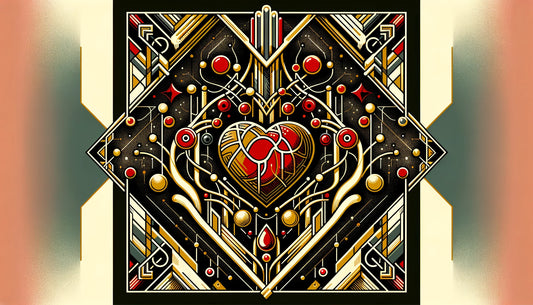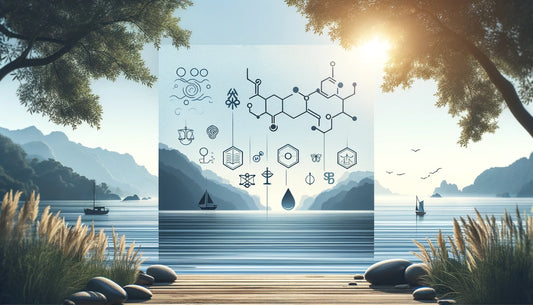The thing is, you don’t “fix” the skin, you “fix” the person as a whole – that’s when the skin improves. Would you be surprised if I said one size doesn’t fit everybody? No, of course not.
The skin requires both macronutrients and micronutrients to maintain its function. The largest organ in the body turns over quickly and is constantly in need of replenishment. So any deficiencies in the body as a whole are quickly signposted in the skin.
The first two supplements to improve your skin are pretty obvious. Read on for the more interesting ones, but I must mention them anyway because if you are low in vitamin D or omega 3 it has large health implications. A recent study showed that good omega 3 levels is linked with an increased life expectancy of 5 years!

1. Omega 3
No big reveal here. Omega3 is essential to the skin structure.
Low levels will cause dry, itchy skin, keratosis pilaris (rough skin on the upper arms) and eczema. At humanpeople we always test for omega 3 and although the ideal level is a ratio of 2:1 the average is over 10:1. In clinic, all my patients with signs of inflammation always have really low levels of omega 3, often a fraction of what they should be. Check out our omega 3 blog

2. Vitamin D
Again, no big surprises. If you want to know more about vitamin D you can check out our blog below.
When it comes to health vitamin D is essential. Vitamin D deficiency will cause an itchy red skin rash. It’s needed for skin cell growth and repair, and prevents skin ageing. Given over 75% of people in the UK are deficient in the winter, this is the other supplement we highly recommend, especially in winter. Check out our vitamin D blog on how to take vitamin D safely.

3. Krill oil
Krill oil is great for people with dry and inflamed skin because it improves facial skin hydration and improves wrinkles. It is also excellent for brain health.
For your skin, it’s all about the high phospholipids and choline that are essential for the formation of the skin barrier. It is also a good source of the omega 3 fatty acids EPA and DHA. If you are low in omega 3, however, you will probably need to take an omega 3 concentrate to correct levels.
Krill oil also contains a small amount of astaxanthin, which we will discuss later. Astaxanthin is a skin super-supplement, a potent antioxidant that works like a super-charged carotenoid.
For your body, it’s great for cognitive function and memory and supports liver health. A great all-rounder.

4. Glutathione / NAC
The skin is the first level of protection from the environment and contains high levels of antioxidants to protect from UV radiation.
Glutathione, the king of antioxidants, is one the most important chemicals in the body.
It is also essential when it comes to skin protection along with vitamin E and vitamin C as you can see in the diagram below.
So how do we boost levels of glutathione? N-Acetyl-l-Cysteine (NAC) is the precursor of glutathione. Glutathione is poorly absorbed directly, whereas the precursor is easily absorbed and increases glutathione indirectly. Large amounts of glutathione are made everywhere in the body, but particularly in the liver.
Glutathione is also fantastic for boosting immunity and is an essential step in the detoxification stage.
Top tip: This is one where you can certainly save money by taking the precursor and not the expensive glutathione that is poorly absorbed. It’s a classic case of marketing trumping science because glutathione supplements are much more expensive and actually less beneficial!


5. Vitamin C
Vitamin C has two major functions in the skin: as an antioxidant, and in the formation of collagen.
Vitamin C is not directly an antioxidant in the skin, but works to support vitamin E. When free radicals or reactive oxygen species are present vitamin E is excellent at mopping them up. However, this then inactivates vitamin E. Vitamin C’s main role is to recycle vitamin E. They work together along with glutathione.
COLLAGEN: the body cannot make collagen without vitamin C – wounds don’t heal and bones (which also have a lot of collagen) are malformed. Fibroblasts have an absolute need for vitamin C for the formation of collagen. That’s why sailors at sea used to get scurvy and skin wounds due to the lack of fresh fruit containing vitamin C.
Vitamin C also helps in the formation of the upper dead skin layer, the stratum corneum, and is essential in making ceramides that are key for skin hydration.
The evidence for using vitamin C creams is weak, however, so oral supplementation and diet is the best way to improve levels. In fact, when vitamin C levels are normal there is no evidence that we absorb any significant amount for the small amount in skin creams. That said, as a weak acid it may have a cosmetic effect as a mild exfoliant.
Other important functions of vitamin C:
Cholesterol synthesis.
Iron absorption: if you are low in iron make sure to take vitamin C at the same time (as a supplement or food) because it doubles the absorption.
It increases the bioavailability of selenium, which is an essential mineral for many enzymes in the body.

Why no vitamin E? Even though it is essential for skin health. AVOID!
When we tested patients we found no cases of vitamin E deficiency. Although it is really important for protecting the skin against ageing and pigmentation we do not recommend taking it as a supplement. In fact, it may even cause problems.
Why? Vitamin E is found in plant oils such as vegetable and sunflower oil, which we consume a lot of. Therefore we normally have a high vitamin E intake.
Also, vitamin E supplements are difficult to make. Vitamin E is very unstable due to the fact it is so great at mopping up free radicals. This also means that when it is exposed to air it gets oxidised quickly and becomes inactive.
Some studies have even shown that high dose vitamin E supplements may be bad for you and increase the risk of cancer, so we say AVOID unless there is specific need.

6. Vitamin H (aka biotin)
Did you know that biotin was also known as vitamin H? This comes from the German words for hair and skin, “Haar und Haut”, as it has long been known that biotin levels are essential for healthy hair and skin. It’s also known as vitamin B7.
Biotin is a compound that supports a number of important enzymes in the breakdown of the macronutrients.
It is important in the synthesis of fatty acids and amino acids, both of which are essential for good skin health.
Brittle hair and nails can be a sign of low biotin.
Biotin deficiency is rare, but we do include it in both our B complex supplements and also in our new collagen complex, which is coming out soon.

7. Vitamin K – natural MK7 form NOT synthetic
Vitamin K is an essential vitamin that can be found as phylloquinone (vitamin K1) in green leafy vegetables. It makes up about 80% of our intake of vitamin K, but is not very active.
Menaquinones (MKs) are types of vitamin K2 found in some animals and fermented foods. This is the type that are made by bacteria and are susceptible to antibiotic use. It is one of the bacteria that Atlas Biomed (our gut testing partners) analyse and report on when you do a gut microbiome test.
There are a number of subtypes of MKs 4-13. The one with the most benefits appears to be K7, which is found in fermented natto.
Why do we need vitamin K?
Prothrombin requires vitamin K to function and is essential for blood clotting.
Osteocalin requires vitamin K to produce healthy bones. A lack of vitamin K will cause osteopenia and osteoperosis.
In skin it helps with the health of small blood vessels, stretch marks, undereye puffiness, and dark circles.
Which foods are rich in vitamin K?
Vitamin K is found naturally in natto, which is a fermented soy bean dish popular in Japan and often described as a super food.
TIP: Make sure you get natural K2 rather than synthetic form of the vitamins. The synthetic forms have been reported to have higher levels of isomers that are inactive in the body.
The other big two we like…

8. Astaxanthin: RECOMMEND
Eat your lobsters! Astaxanthin was first derived from lobsters and is a super-supplement not only for skin, but also for general health. It is a potent antioxidant that reduces LDL cholesterol and is cardioprotective.
Astaxanthin (“ASX”) is the most abundant carotenoid in marine organisms and is a powerful natural compound with remarkable antioxidant properties.
In skin: ASX inhibits the enzyme that breaks down collagen MMP1 and suppresses cell damage caused by free radicals.
As an antioxidant it is much more active than vitamin E and other carotenoids due to its structure.
In the skin it has strong anti-inflammatory effects. It decreases UV induced nitrogen species, decreasing iNOS and COX-2 that lead to psoriasis and eczema.
It reduces key inflammatory mediators such as IL-1B and IL- 6, and boosts wound healing. When used in conjunction with CoQ10 it also reduces cholesterol and has been shown to be cardioprotective.
When it comes to skin, astaxanthin is a super-supplement.

9. Hydrolysed marine/fish collagen: RECOMMEND
Marine collagen is made from the skin of fish.
We have done a lot of research into collagen and reviewed a lot of the clinical papers that can be found in the appendix below. The evidence, in our opinion, has now reached a tipping point where we can now move it on to our RECOMMEND list.
Marine collagen contains a lot of type I collagen, which is the type of collagen mainly found in skin.
However, the mechanism by which it works may not be what you think. We can’t magically eat collagen for it to appear in our skin. In fact, we cannot absorb any type of collagen at all. The collagen peptides in the gut are broken down into amino and THEN absorbed.
How it works:
When you consume a hydroxylated collagen you have all of the essential amino acids broken into fragments what we call “collagen peptides”. This appears to “trick” the body in thinking that there is broken down collagen in the body and so the enzyme that breaks down our own collagen MMP1 (matrix metalloproteinases ) is slowed down and so our own breakdown of collagen is slowed down.
It’s a great source of 19 different amino acids in particular hydroxyproline which is not found in other proteins.
Exciting news:
We are currently working with our manufacturers to develop a marine collagen that is combined with essential micronutrients like biotin and vitamin C to optimise its effect. Collagen needs to be taken at a high dose to have an effect, all of the studies recommend a minimum of 5g. Look out for our launch and blog on the science behind collagen.

Watch this space: gut-skin axis – probiotics.
“In clinic some of the most inflamed acne cases and worse cases of eczema and psoriasis are linked to long term use of antibiotics and on analysis a very poor gut microbiome. Until gut health is addressed any improvement will only be temporary.”
The evidence for improving skin health through gut health and probiotics is very strong, but it is not as simple as just taking any probiotic. The state of the gut needs to be understood and probiotics need to be high dose and specific to the skin condition.
Some of the species with good clinical evidence are L. rhamnosus and L. casei watch this space for more…
Summary
So in summary, there are a number of supplements that can make a big difference if you are deficient in them, but there is little evidence to suggest that they can help when you take high doses.
The exception to this may be collagen and we can never have enough omega 3.






